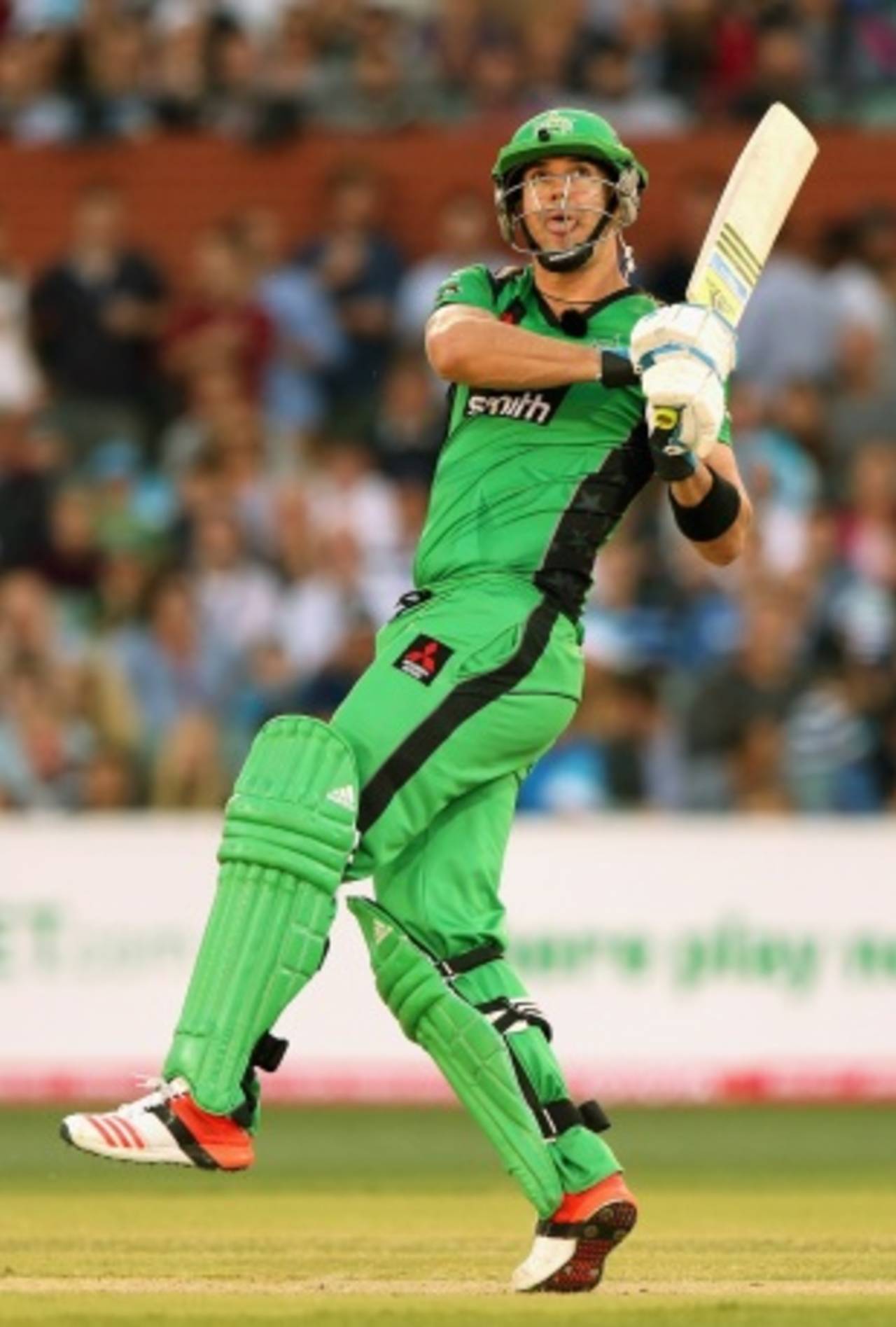Counties hit by new payment rules
Counties will be encouraged to develop "home-grown" players by a series of new regulations brought in by the ECB.
George Dobell
Jan 23, 2015, 2:57 PM

Despite his Big Bash success, Surrey are unlikely to be able to re-sign Kevin Pietersen • Getty Images
Counties will be encouraged to develop homegrown players by a series of new regulations brought in by the ECB which seek to micro-manage the way they draw up their playing budgets.
While the most eye-catching change will see the salary cap cut by 10% - the new limit will be £1.976m a year - ESPNcricinfo understands that a 10% discount will be given to England qualified players of any age on the county staff provided they have not played for another first-class county previously.
For counties that produce England players, however, the salary cap will not be as draining as first appears.
The ECB have also introduced, for the first time, a minimum salary fee per squad of £750,000 per year in an attempt to ensure the standard of all county cricket remains relatively high and that an acceptable proportion of the central fund is committed to player expenditure. Only a couple of counties are understood to have salary bills so low, with the rest above £1m.
The salary figure includes any benefits in kind as defined by HMRC, plus flights for overseas players, but it does not include travel expenses for away games in county cricket.
While the timing of the decision is odd - it will take force from April and most counties have already finalised their budgets for the coming season - it is understood that some leniency will be shown to any county who has already committed to a salary package in excess of the new level.
But it will do nothing to encourage counties to sign the "big name" overseas players that have been so admired in other domestic T20 tournaments and it may spell the end of Surrey's attempts to re-sign Kevin Pietersen for the 2015 season.
The club recently recruited Kumar Sangakkara as an overseas player and, while they had retained the budget to sign Pietersen as well, now admit that will prove difficult.
The PCA - the players' union - gave a lukewarm response to the news. While Angus Porter, the PCA chief executive, welcomed the introduction of the minimum payment - an initiative designed to ensure counties invest in cricket rather than using money for ground redevelopments or debt repayment - he was uncomfortable with the late notice of change given to counties.
"This news has taken everyone by surprise a little," Porter told ESPNcricinfo. "And while the salary cap is a hypothetical problem for 16 or 17 of the counties, we do not welcome a constraint. We believe counties should be able to pay what they can afford.
"That having been said, we do rather money is spent on paying England-qualified players properly instead of spending ridiculous sums on overseas players.
"We would also like to sit down and work out a formula to establish such principles in the future, rather than having a situation where this is decided year-by-year. We know what TV revenues are; there is no reason we cannot work something out which allows everyone greater certainty over their planning in the longer term."
The ECB have already instigated several incentive schemes to promote the selection of young, England-qualified players as they limit the freedom of counties to allocate their funds as they see fit.
Clubs are financially rewarded for including England-qualified players in Championship and List A cricket, with the optimum payments being made if two of the players are aged under 22 and three more are under 26 on April 1 of that year. The ECB also lobbied for greater work permit restrictions designed to make it harder to players who are not England qualified, including Kolpak registrations and overseas players.
While such schemes have produced more opportunities for homegrown players, they might also have taken a bit of experience - and as a consequence, quality - out of the domestic game. There is a fear that it will lead to a growing gap between the international and county game.
The cut to the salary cap might also create issues for clubs with players coming back on the pay roll following a period with central contracts. Durham were penalised - they were forced to pay a small fine and deducted points in all three competitions for the 2013 season - for breaching the cap in 2011 during a period in which Paul Collingwood and Steve Harmison lost their central contracts and returned to the county's pay-roll. Under the new regulations, exceptions will be made in such circumstances.
George Dobell is a senior correspondent at ESPNcricinfo